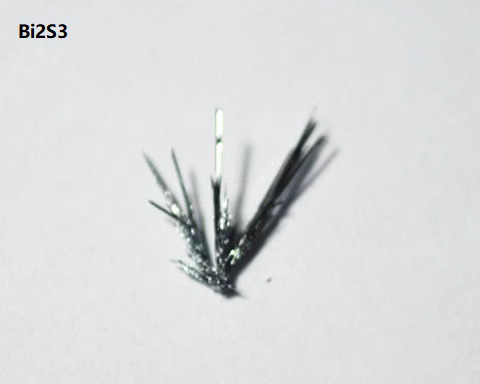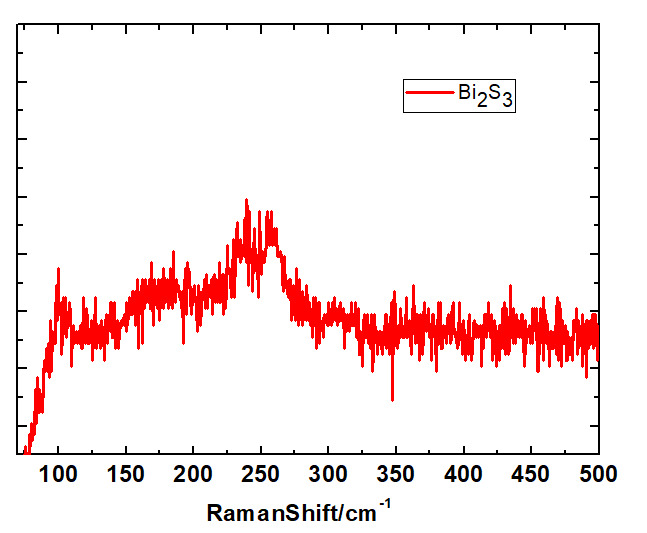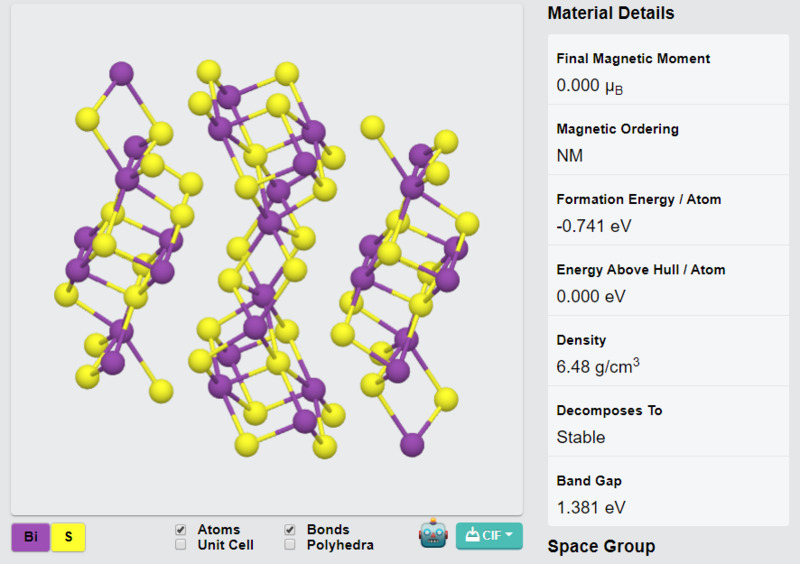Description
Bi₂S₃ Crystals (Bismuth Sulfide)
Bi₂S₃ (Bismuth Sulfide) is a layered semiconductor material known for its excellent thermoelectric, optoelectronic, and photocatalytic properties. It has a narrow bandgap and high absorption coefficient, making it highly suitable for applications in photodetectors, thermoelectric devices, and solar energy conversion. Our Bi₂S₃ crystals are synthesized using the Chemical Vapor Transport (CVT) method, ensuring high purity, superior crystallinity, and uniform structural properties.
Sample Size Options:
Crystals larger than 10 mm²
Crystals larger than 25 mm²
Crystals larger than 100 mm²
Material Properties:
Layered Orthorhombic Structure: Facilitates easy exfoliation into thin layers for 2D material research.
Narrow Bandgap: Bandgap of ~1.3 eV, suitable for infrared detectors and photovoltaic applications.
High Absorption Coefficient: Strong light absorption in the visible and near-infrared regions, ideal for photodetectors and solar cells.
Thermoelectric Performance: Promising material for thermoelectric applications due to its high Seebeck coefficient.
Environmental Stability: Stable under ambient conditions, making it suitable for long-term applications.
Crystal Structure:
Type: Orthorhombic layered structure
Features: High crystallinity with uniform, defect-free layers, ideal for thin-film fabrication and nanoscale device applications.
Degree of Exfoliation:
Ease of Use: Can be exfoliated into thin layers for advanced materials research and device fabrication.
Other Characteristics:
Photocatalytic Activity: Effective for photocatalytic applications, including water splitting and pollutant degradation.
Anisotropic Transport Properties: Exhibits direction-dependent electrical and thermal conductivity, suitable for advanced device designs.
Eco-Friendly Composition: Composed of non-toxic and earth-abundant elements, making it environmentally friendly for large-scale applications.
Applications:
Optoelectronics:
Ideal for photodetectors, infrared sensors, and photovoltaic devices due to strong light absorption.
Thermoelectric Devices:
High thermoelectric performance for energy conversion and waste heat recovery applications.
Energy Storage:
Potential applications in batteries and supercapacitors due to its layered structure.
Photocatalysis:
Suitable for photocatalytic hydrogen production and environmental remediation.
2D Material Studies:
Can be exfoliated into thin layers for use in van der Waals heterostructures and 2D materials research.
Synthesis Method:
Chemical Vapor Transport (CVT): Ensures high-quality crystals with excellent purity, uniform thickness, and superior structural integrity.
Additional information
| CAS Number | 1345-0₇-9 |
|---|




